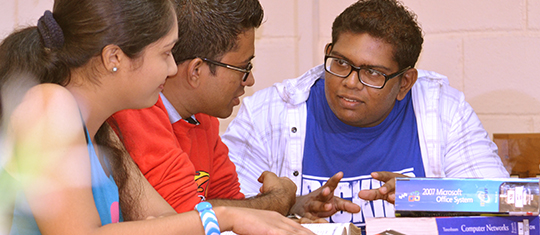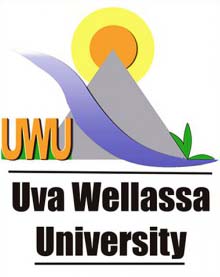The ‘Traveling University’ (TU) is a signature seminar course of the International Material Flow Management (IMAT) master degree program offered by the Institute for Applied Material Flow Management (IfaS). In this seminar course IfaS aims to deploy its expertise in tangible projects world over whilst give the students the opportunity to put their acquired knowledge into practice in real time. Having completed projects in Germany, Sweden, China, Brazil, Turkey, Serbia, Morocco, Cape Verde etc., on its 15th year, TU plans to undertake a project in Sri Lanka in 2014. The main objective of this undertaking is to convert one of IfaS’ partner universities – the Uva Wellassa University of Sri Lanka (UWU)– to a ‘Zero Emission Campus’, which shall be modelled after the Environmental Campus Birkenfeld (ECB); the first ‘Zero Emission’ campus in Europe. The project shall be the first of its kind not only in Sri Lanka but also in South Asia.
The ‘Zero Emission Campus’ Birkenfeld [a.k.a. the Environmental Campus Birkenfeld (ECB)] is a premier German/European higher education and research institute specialized in sustainability and environmental studies. At ECB innovative and ecological building standards are complemented by modern utility technologies and sustainable resource management systems. The electricity and heat energy demand of the campus is completely fulfilled by renewable energy sources. Among other things, cutting-edge energy efficiency measures (such as LED lighting, triple-glazed fenestration etc.) and sustainable resource managements systems (such as water reuse, rainwater harvesting, waste to energy etc.) are in place not only for economic reasons but also as study objects for the students and visitors.
Twelve students from Germany, Morocco, Japan, China, India, Bhutan, Cape Verde and Colombia with some expert faculty to guide them shall carryout the feasibility study at UWU from the 13th to 24th February. Besides the preliminary task, it is also aimed to conceptualize a Regional Material Flow Management (RMFM) plan, which shall provide the framework for the utilization of regional material flows (such as municipal solid waste, agricultural residue, regional biomass etc.) by creating synergy between local public and private organization with UWU.
This project strives to achieve triple bottom line benefits (social, environment and economic sustainability) and expects to showcase ‘UWU Zero Emission Campus’ as a national and an international example.









